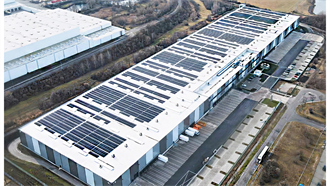Sentiment among German real estate lenders has taken an unprecedented nosedive as it dropped to an all-time low of -15,24 points so far in the second quarter, according to BF.direkt’s newly-released Quarterly Barometer.
The figure represents a plunge from -3.81 points in the first quarter 2020, reflecting the most dramatic quarter-over-quarter shift on record, as a result of the coronavirus crisis.
Decisive for the steep drop in sentiment is the general assessment of the situation on the financing market, where eight out of ten respondents rate the situation as more restrictive. This is up from just 8% the previous quarter.
The ramifications of the crisis also dominate the trend in new lendings. More than half of the banks (58%) brace themselves for a dip in new lendings. Refinancing costs represent a third key factor that radically deteriorated. 83.3% of the respondents expect to see refinancing premiums. For the sake of comparison: This is up from just 25% the previous quarter.
Manuel Köppel, CFO of BF.direkt, commented: ‘The Barometer’s strong motion reflects that massive impact of the coronavirus crisis on real estate financing. That being said, it captures just a snapshot. The lockdown in Germany is an external shock event that the industry will have to cope with. This time around, the survey took place at the height of the crisis, between 30 March and 10 April. I’m quite convinced that this very bleak sentiment is unlikely to persists for many months, but will improve again, although it may take time.’
Margins Rising while LTVs and LTCs Decline
Margins jumped up noticeably during the second quarter. In inventory financing, they rose from 131 to 147 basis points, and in property development financing, from 220 to 231 basis points. Conversely, loan-to-value (LTV) ratios in inventory financing and loan-to-costs (LTC) in property development financing were lowered significantly. The average LTV ratio dropped to 65.6% (Q1/2020: 69%) and the LTC ratio to 71.1% (Q1/2020: 73.4%).
Manuel Köppel added: ‘We have noticed in day-to-day business that contract clauses are being adjusted within the framework of ongoing negotiations. Lenders, for example, require that higher interest-rate buffers are built into financing arrangements or that more equity capital or extra collateral, e.g. in the form of surety bonds, is provided.
'Banks generally prefer to collaborate with renowned and experienced developers in times of crisis who bring a robust track record to the table along with a sound equity capital basis. What matters in the current situation is that developers have ways to cope with difficulties—which may be triggered by construction delays, for example—but also that financing banks have the necessary experience to deal with covenant breaches.’



































